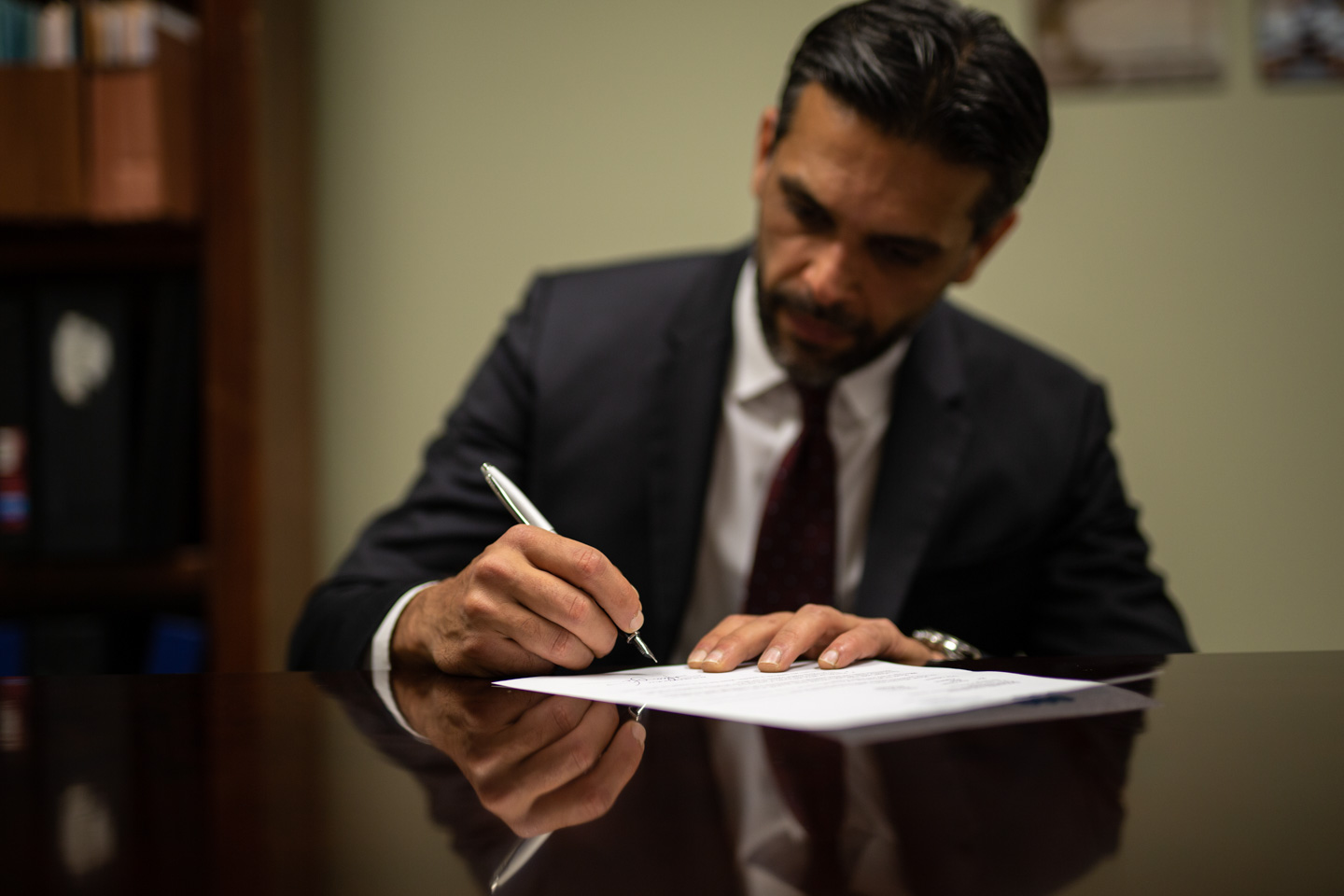The Impact of Social Media on Personal Injury Claims
The impact of social media on personal injury claims is complex and can significantly influence case outcomes. Here is what you should know about the relationship between social media and personal injury claims.
![[[NAME]]](/resources/images/AdobeStock-639727805.jpeg)
Social Media Scrutiny: How Online Activity Can Undermine Personal Injury Claims
In today’s digital age, social media plays a pervasive role in our lives, influencing everything from our social interactions to our personal narratives. However, for individuals involved in personal injury claims, the online landscape can be a double-edged sword. As more people turn to platforms like Facebook, Instagram, and Twitter to share their experiences, it’s crucial to understand how social media scrutiny can undermine personal injury claims.
As social media continues to shape our communication and interactions, individuals involved in personal injury claims need to be aware of its potential pitfalls. By understanding the implications of online activity and seeking guidance from legal experts, claimants can protect their interests and strengthen their cases. Consulting with a personal injury attorney not only helps in navigating the complexities of the legal system but also provides a safeguard against the inadvertent consequences of social media scrutiny. In this interconnected world, a cautious approach to social media is essential for anyone seeking justice and compensation for injuries.
Social Media as a Witness: How Online Observations Can Impact Personal Injury Cases
Navigating social media during a personal injury case can be tricky, which is why getting legal help is so important. Personal injury lawyers know how the law works and understand how social media can impact a case. They can guide clients in managing their online activity, making sure nothing posted hurts their personal injury case. The best personal injury lawyer will also use social media as evidence, investigating posts and interactions from everyone involved to find proof that supports their client or weakens the defense’s arguments.
In the legal arena, the level of evidence is crucial for establishing the validity of claims. Social media posts often serve as primary evidence, offering a snapshot of an individual's life that can be scrutinized during litigation. Personal injury lawyers are adept at gathering this type of evidence, examining timelines, posts, and interactions to build or undermine a case.
Social Media's Role in Settlement Negotiations: How Your Online Presence Affects Claim Value
Social media can be helpful, but it can also create serious legal challenges. What you post online can impact how your injury claim is viewed and may even affect the amount of money you receive. A simple social media post that seems harmless could be used against you and lower the value of your claim.
Getting legal help is important when dealing with personal injury claims. Experienced personal injury lawyers can guide you in managing your social media presence during settlement negotiations. They know the risks of posting online and will help you avoid sharing anything that could hurt your case. Lawyers can also provide advice on how to use social media to your advantage, like posting about your recovery process or ongoing struggles. This kind of content can be strong evidence that supports your claim and shows how the injury has affected your life.
Legal assistance is crucial for individuals navigating personal injury claims. Experienced personal injury lawyers can guide clients on how to manage their online presence during settlement negotiations. They understand the potential pitfalls of social media and can help clients avoid posting content that could jeopardize their claims.
Online Engagement Shaping Recovery in Personal Injury Claims
Using social media while handling a personal injury case can create legal problems. Anything shared online can be seen by the other side and used against you during settlement negotiations. Personal injury lawyers understand this and often guide clients to maintain a cautious online presence.
Even a harmless post can be used by the defense to lower settlement offers or drag out negotiations, especially if your injuries aren't visible. Any sign that you're doing normal activities could raise doubts about your claims.
Because of the risks with online engagement, having a personal injury lawyer is crucial. They help guide you on how to manage your social media presence during your recovery, advising what to post, what to avoid, and how to document your progress.
Additionally, skilled personal injury lawyers can use social media to your advantage. They may suggest sharing honest updates about your recovery struggles, which can serve as strong evidence in showing the impact of your injury and boosting your case during settlement negotiations.
Frequently Asked Questions
Q: Can settlement negotiations be used as evidence?
A: Settlement negotiations themselves typically cannot be used as evidence in court due to confidentiality rules. However, the context surrounding these negotiations, including the online presence of involved parties, can impact the outcome of a personal injury case significantly.
For example, social media posts may serve as primary evidence during settlement discussions, particularly if they contradict a claimant's assertions or reflect their level of activity post-injury. This can lead to legal challenges if the opposing party employs social media scrutiny to undermine the plaintiff's claims. Personal injury lawyers often emphasize the importance of managing one’s online presence, as any public posts can influence perceptions and negotiations.
Q: Is personal injury a civil case?
A: Yes, personal injury cases are indeed classified as civil cases. In these cases, the injured party seeks compensation from the responsible party, often requiring the testimony of witnesses to establish liability. Legal experts and defense attorneys play crucial roles in navigating the complexities of these cases, as they may face various legal challenges that impact the outcome.
Having legal assistance is essential for plaintiffs to effectively present their case, gather evidence, and counter any defenses raised by the opposing side. The dynamics between witnesses, defense attorneys, and legal experts significantly influence the case’s trajectory and the compensation ultimately awarded.
Q: What is illegal to post on social media?
When involved in a personal injury case, it's crucial to be mindful of your online presence, as certain types of social media posts can negatively impact your claim. Here are some things that are generally illegal or unwise to post:
Incriminating Evidence: Any posts that admit fault or imply responsibility for the injury can severely undermine your case.
Exaggerated Claims: Sharing content that contradicts your injury claims—such as photos of engaging in strenuous activities—can be used against you.
Confidential Legal Information: Discussing details of your case, including settlement offers or communications with your personal injury lawyers, can jeopardize your legal representation.
Negative Comments About the Opposing Party: Posting derogatory remarks about the defendant or their insurance company can lead to legal repercussions and affect your credibility.
Posts About Your Recovery: While sharing your recovery journey can be positive, be cautious. Any posts that show you participating in activities that contradict your claimed injuries may be scrutinized.
Get Legal Representation for Your Personal Injury Case Today!
If you are seeking justice after a personal injury, the guidance of experienced personal injury lawyers is invaluable. At Ali Law Group, we help you understand how your online behavior can affect your case and show you how to use social media effectively to strengthen your claim. In a world where every post can be a piece of evidence, being mindful of your digital footprint is essential to achieving a favorable outcome in any personal injury case.
Disclaimer: The information provided on this blog is for informational purposes only and does not constitute legal advice. Every situation is unique, and the law can be complex. For specific legal guidance on your personal injury case in Texas, contacting an experienced attorney is essential. The Ali Law Group is not responsible for any actions taken based on the information contained here.















